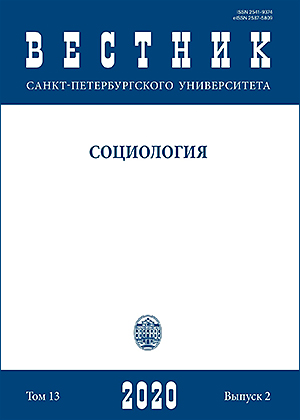Interfirm mobility and career success of knowledge workers
DOI:
https://doi.org/10.21638/spbu12.2020.204Abstract
The paper presents a critical review of studies concerned with the relationship between interfirm mobility of knowledge workers and their objective and subjective career success. Within the context of discussions regarding employment standardization and the individualization of life trajectories, nonlinear career paths based on high mobility of workers during their life are attracting attention of researchers. From the perspective of the “new” career theories and
theories of post-industrialism, high mobility is associated with achieving greater career success compared to a traditional career. The ability to stay mobile is considered not only as a condition for adapting to the realities of the modern labor market, but also as accumulation of unique human and social capital acquired through work experience in different companies. The opposite point of view postulates that stability is still more valued by the best workers. Potential
risks and losses associated with mobile behavior may be too high, allowing those who adhere to the model of long-term labor relations be at an advantage. In the paper the author summarizes the results of existing empirical studies within given research field, examining the impact of physical and psychological mobility of workers on the indicators of their objective and subjective career success. Changes in the level of income and job position are used as indicators
of objective success. Subjective success includes perceived career success, career satisfaction, satisfaction by achievement and non-achievement aspects of work, perceived employability, work engagement, work-life balance satisfaction and overall well-being. A comparison of the research results confirms the controversy of theoretical views on the role of interfirm mobility in career. The author offers promising areas of possible research and brings forward
the opportunities for further research of this issue.
Keywords:
interfirm mobility, career success, boundaryless career, knowledge workers
Downloads
References
References
Downloads
Published
How to Cite
Issue
Section
License
Articles of "Vestnik of Saint Petersburg University. Sociology" are open access distributed under the terms of the License Agreement with Saint Petersburg State University, which permits to the authors unrestricted distribution and self-archiving free of charge.




